Killarney, the best spot to join the Ring of Kerry, is a place of tour buses. Vast hotels sit on the market town’s outer reaches and along the main street tourists trail in search of gift shops. Bars pump out what my friend, Dublin-born John, calls the tinkly tinkly music. Here Guinness is good for you, but beware leprechauns crossing. This industry, welcoming more than one million guests a year, maintains a permanent population of 13,000. Behind the scenes, those residents bring a very modern Irish attitude to having fun that is utterly authentic.
I flew into Killarney in July with four friends, an easy trip from Luton to Kerry. There was John, Benedicte, Des and Angus, the last of whom used to run an Irish racecourse and who suggested we watch the football World Cup final in an Irish pub, then go horse racing. “Killarney has the most beautiful course in Ireland,” he said. “Maybe Europe… possibly the world.”
The key to breaking through the kitsch is to follow the local entertainment and, in Ireland, that means sport. Within hours, John had met up with a nephew, a chef in one of the top hotels who told us of a Gaelic football game, a local derby in the county championships. Gaelic games, born of resistance to British rule, are tough and exciting. As we took our seats on the terrace, under a broiling sun, John’s nephew said he used to play the game, as a central defender, halting the opposition’s final lunges: “My job was to get sent off for the good of the team.”
As Crokes vs Legion warmed up, other spectators arrived, filling the terraces. They came in complete families, from infants to great-grandparents, often wearing opposing colours. It was, if I had to guess, mostly women. By the time of kick-off there were 4,000, and soon remarks were arrowing over the crowd. “Bring him down!” shouted a woman. Another, possibly related to the player the first wished assaulted, sounded outraged: “What are you saying?” The women had words and someone else laughed: “They won’t be talking for weeks.”
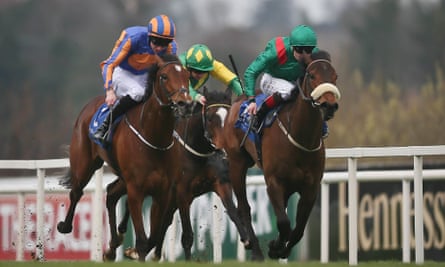
From this carnival, we walked back into town to eat Irish stew in the corner of McSweeney’s. Here we were met by Aine, travel agent, director of the racecourse, wife of the impresario behind an excellent (and not at all tinkly tinkly) show called Celtic Steps, and a leading light in the town. She took a drink as, on the telly, Germany and Argentina began the battle over the World Cup. “My mother’s out there,” she said nodding towards the main bar. I expressed concern because she must be of a certain age and the bar was a seething crush. “Oh, she’s fine,” said Aine. “She’s with her friends.”
Sometime in the evening, I must have asked about fishing because the following morning I found myself in the company of John Buckley, a straight-talking Kerryman and captain of the all Ireland fly-fishing team. He led me down to the Flesk, the local stream. I pretended not to be nursing a Ulyssean hangover, while thanking God I am a skilled angler. We entered the river. I slipped on a rock, somersaulted, and plunged in head first, emerging to a look of desolating disdain.
My companions, meanwhile, had avoided the busy Ring of Kerry and instead driven down to the Beara Peninsula, a trip that had caused Aine to cry out in horror: “But that takes you into North Cork!”
John rhapsodised the journey like this: “The sun shone on narrow roads that hugged the coastline and we happened on the best little pub in Ireland serving fresh crab sandwiches. We ate outside, staring at the glistening sea, sipping a pint of Guinness. On the journey back to Kenmare, we travelled through the Healy pass and its magnificent views of the county’s loughs, mountains and coastline.”
Weekday horse racing in Killarney happens in the evenings, making it a very local affair. The taxi driver who took us to the course offered gambling tips and when we arrived he rounded down the fare, like all the drivers in Killarney, a pleasant tradition I’ve never found elsewhere.
Horses are taken very, very seriously in Ireland. The country has two of the world’s most famous breeding studs and many great trainers. The Irish government, as it charts its recovery from the financial crash, has decided that the sport is central to its economic plans. Horseracing Ireland has set up a “Champions Weekend” which will take place at two racecourses in Dublin in a couple of weekends’ time. It was to get a taste of a holiday that took in a trip to the races, that we came to Killarney.
The racecourse lies just above Lough Leane, between the outstretched arms of the McGillycuddy Reeks and Torc mountain. It’s a landscape every bit as awash with colour and legend as you could dream of. This isn’t the snooty playpens of Ascot – it’s intimate, friendly, funny and exciting. It’s rural Ireland at play. We could get everywhere, from seeing the horses come out to the parade, to feeling the beat of their hooves in our bones as they galloped past, to watching as they were washed down afterwards.
For the big race we wandered down to the course side. There was thunder in the air and an eerie Atlantic dusk lay across the Reeks. I’d asked someone where the name of the mountains came from. “A man called McGillycuddy used to own them,” I was told. But reeks? “Aw, that’s probably English.”
“Really?”
He shrugged: “Sounds like it.”
The thunder grew stronger. A strip of the deepest green ran away towards the lough, along which came the 14 horses at full gallop, jockeys tight down on their backs. They took a fence and there was a cry as two of the riders fell, rolling away under the hooves. Close now, I felt their pace, another fence, another faller, and saw the faces of the remaining few jockeys strained and determined. And then they were past.
I had won. I wandered back to the bar, stopping by the man standing guard at the door. He was smiling. “Good tip,” I said, and asked if I was allowed to share my winnings with him given he was on duty.
“Sure you are,” he laughed.
Essentials
The Irish Champions Weekend takes place at Leopardstown and the Curragh on 13-14 September. For all event information including travel, accommodation and ticket offers go to irishchampionsweekend.ie. For trips to Killarney, Ryanair flies from Luton to Kerry. Ruaridh Nicoll stayed at the Brehon hotel (thebrehon.com) from £100 a night. For information on Killarney Racecourse go to killarneyraces.ie, and Celtic Steps, go to celticsteps.ie
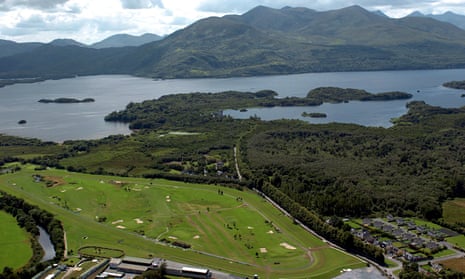
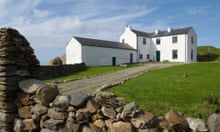
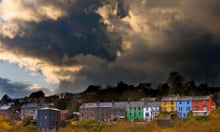
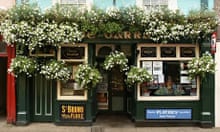
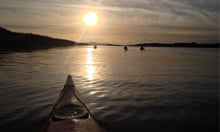
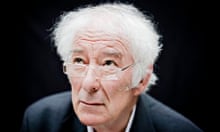
Comments (…)
Sign in or create your Guardian account to join the discussion